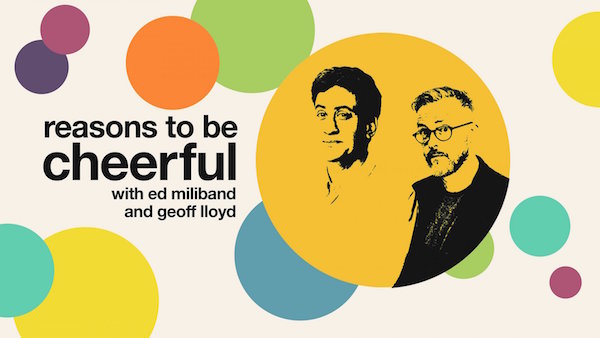
VARIETY ITALIAN STYLE
You might have seen occasional reports about the ongoing political uncertainty in Italy following the March election. Maybe you dismissed it as a continuation of, well, the last 70 years of Italian politics. But with Five Star Movement and the League parties set to join forces, this is definitely not business as usual as far as the European Union goes. Politico.eu has an explainer on what it means for Europe, and why it’s (yet another) win for Vladimir Putin. Meantime, Gallic hopes that French will become the, um, lingua franca of the EU in the wake of Brexit have been dashed — the absence of the Brits will mean English could become the new neutral language of the union.
THE LATEST FROM THE INTERNOT
Good old-fashioned wargaming is coming back into style for generals, armchair and otherwise: a board game based on the UK National Cyber Security Strategy, in which players take turns playing as Russia and the UK, is proving a valuable training aid for military and policy planners confronting the possible impacts of a cyber war (can a movie based on the game be far behind)?
Meanwhile, in the #internetofshit (that’s the technical term for what the media calls the Internet of Things), your smart speaker can be controlled by verbal commands embedded in other sounds, making them ripe for hacking. As far as I’m concerned, we can never have too many articles about how profoundly dangerous #internetofshit products are to your privacy. Elsewhere, what happens when flat earthers come offline and try to interact in the real (pancake flat) world? Great piece from CNet’s Mark Serrels about Sydney’s smallest ever convention.
SEE YOU NEXT WEDNESDAY
It’s 50 years since the release of one of the greatest films, Stanley Kubrick’s 2001: A Space Odyssey. Michael Benson’s new book Space Odyssey (review here) exhaustively, but never exhaustingly, charts the development of the film from discussions between Kubrick and Arthur C. Clarke on the former’s Manhattan terrace to its release (and initial savaging by US critics).

If you haven’t got time to read Benson’s book (the best part is the detailed explanation of how they shot the Discovery scenes in the centrifuge set), watch a short documentary on the debt modern directors owe to the film. And if you’re at all interested in Kubrick, movies or pathological perfectionism, Michael Herr’s homage to the director is compulsory reading, and one of the best pieces Vanity Fair has ever published.
STAT OF THE WEEK

The defeat of cervical cancer? A publication last week from the Australian Institute of Health and Welfare gives an indication of how the National Cervical Screening Program has affected the detection, incidence and mortality of cervical cancer since 1991. The death rate among Australian women more than halved, even before the impact of the Gardasil vaccine.
There’s still a long way to go for Indigenous women, though — while the death rate has fallen by 60% to 2010 (the most recent data), it’s still three times as high as for non-Indigenous women.
AMERICAN EXCEPTIONALISM
What if we applied the standards we use for terrorists to the United States? Le Monde Diplomatique runs the ruler over US extremism. And while there’s a blue wave set to sweep the House of Reps in November, the Democrats have next to no chance of capturing the Senate, due to a rare alignment of the political stars. Meanwhile, California is struggling with similar housing affordability issues to Australia’s east coast cities. And hey — they’re contemplating even dumber, counterproductive ideas than we have!
NO EXIT
For something many millions of us spend a considerable part of our life doing, commuting seems to attract surprisingly little study or attention. Iain Gately’s 2014 book Rush Hour is a recent addition to the rather thin canon. As a definitionally liminal space, which can only be filled with distraction but never given meaning, commuting is the ideal subject for existential angst. American writer Barrett Swanson’s exploration of the need to stare into the commuting abyss, rather than populate it with content, is one of the better pieces of writing I’ve seen this year.
PODCAST OF THE WEEK

UK Labour’s Ed Miliband may not have been that flash an opposition leader but his Reasons To Be Cheerful podcast with Geoff Lloyd is an excellent and thoughtful insight into political issues big and small. Like many podcasts, it’s ten minutes too long due to inane chatter but once onto the substance, it’s excellent and it’s always good to hear what a thoroughgoing political geek Miliband was as a kid. Try here for a kick-off.
AND FINALLY…
Can Jews makes jokes about the Holocaust? If so, can gentile audiences laugh? And when does making fun of rituals become making fun of their practitioners? Kerri Sackville untangles some knotty problems around uncomfortable laughter from the Melbourne International Comedy Festival.








Nice set of links you got there Bernard thanks
The Space Odyssey book gives me an idea for a birthday hint.
Hi
Yes making a religion appear ridiculous can cause social problems. However the problem is perhaps the religion itself. As you say religions have ridiculous rituals. Isn’t it more correct that all religion is based on ridiculous notions? And this modern adherence and insistence on these ridiculous notions causes so much violence and social disharmony.
The tenuous climb of atheism points to the chance of a world where this foolish following of ancient texts by deluded men ( never women) will decline. If making fun of these delusions hastens there end – let it rip.
don